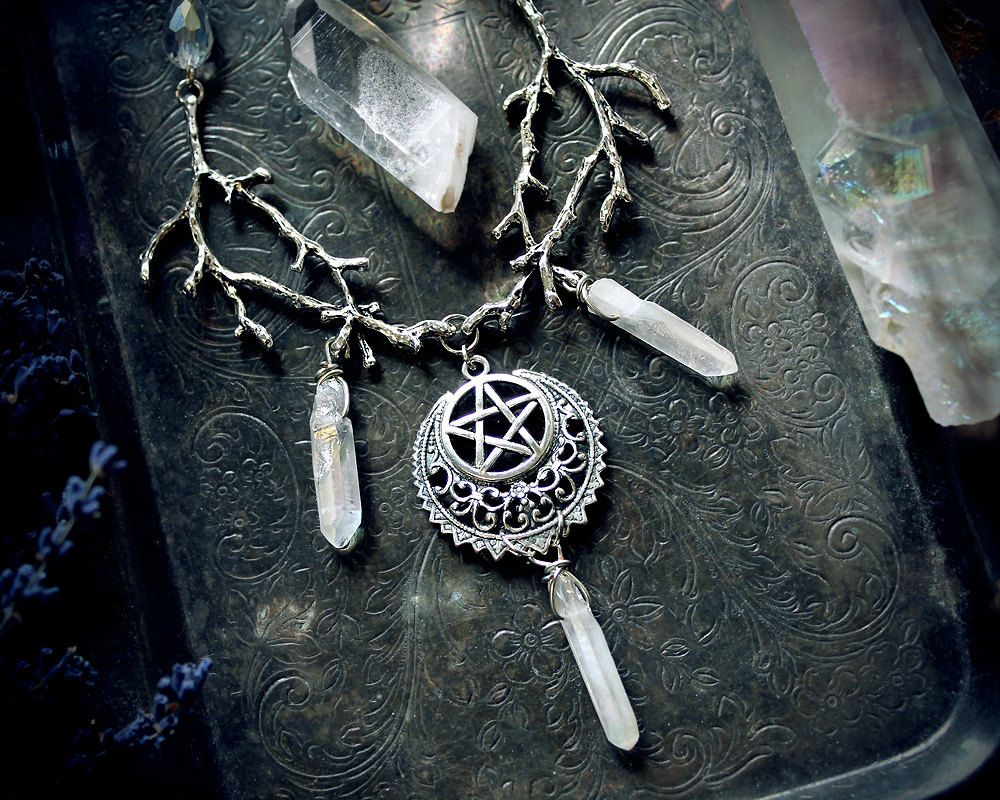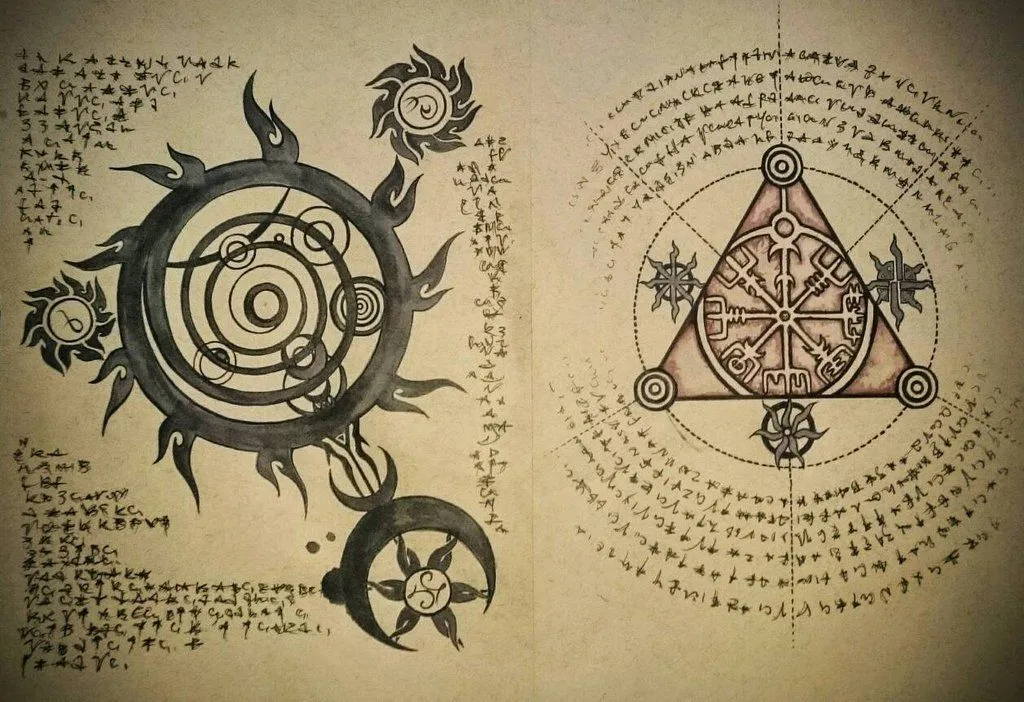Have you ever felt like a dark cloud is following you, no matter what you do? Do you wonder, “Am I cursed?” You’re not alone. Many people experience persistent bad luck, unexplained misfortunes, or an overwhelming sense of dread, leading them to question if they’re under a magical attack.

In the world of witchcraft and spiritual practices, the concept of a curse or hex is very real. However, it’s also true that sometimes what feels like a curse can be a string of unfortunate events, unaddressed personal energy, or even a psychological pattern. This comprehensive guide will help you decipher the truth, understand the potential signs of a curse, explore its possible causes, and most importantly, equip you with the knowledge and tools to cleanse yourself and reclaim your power.
Understanding the Feeling: Is It a Curse or Just Bad Luck?
It’s crucial to approach this question with both an open mind and a grounded perspective. Before jumping to conclusions, it’s wise to consider all possibilities.
When it might just be everyday challenges or personal patterns:
- Stress and Anxiety: Prolonged stress can manifest as physical ailments, poor decision-making, and a general feeling of being overwhelmed.
- Negative Mindset: If you constantly expect bad things to happen, you might subconsciously create those realities or simply notice negative events more often. This can feel like a self-curse.
- Unaddressed Issues: Ignoring problems, whether financial, relational, or health-related, can lead to a snowball effect of misfortune.
- Coincidence & Probability: Sometimes, bad things just happen. Life has its ups and downs, and a series of unfortunate events, while frustrating, might just be statistical probability.
- Medical or Psychological Conditions: If you’re experiencing unexplained physical symptoms, persistent depression, or paranoia, it’s vital to consult a medical professional. Spiritual work should complement, not replace, professional healthcare.
However, when strange patterns emerge, or the misfortunes feel inexplicably targeted and persistent, that’s when many begin to wonder: Am I truly cursed?
Signs You Might Be Cursed: A Witch’s Perspective
While every situation is unique, there are common threads and unusual occurrences that often lead individuals in the witchcraft community to suspect a hex or curse. If I think I have been targeted, these are the signs I would look for:
- Unexplained, Persistent Bad Luck: This goes beyond a few unlucky days. It’s a relentless string of failures in multiple areas of your life – work, relationships, finances, health – despite your best efforts. You might experience car breakdowns, job losses, or significant financial drains that seem to appear out of nowhere.
- Sudden, Unexplained Health Issues: While ruling out medical causes is paramount, if doctors can’t find a reason for chronic fatigue, sudden illnesses, or recurring minor ailments that appear after no logical trigger, it could be a sign.
- Constant Accidents & Injuries: A persistent pattern of minor (or even major) accidents, cuts, falls, or clumsiness that seems to follow you, regardless of your caution.
- Negative Impact on Relationships: Your once stable relationships suddenly become fraught with arguments, misunderstandings, or betrayals. Friends and family might inexplicably pull away.
- Financial Ruin or Stagnation: Money problems intensify without clear reasons. Unexpected expenses pile up, opportunities vanish, or you find it impossible to save or progress financially.
- Feeling Drained, Heavy, or Attacked: A pervasive sense of exhaustion, lethargy, or being watched. You might feel a heavy weight on your shoulders, or a constant chill even in warm environments.
- Recurring Nightmares or Disturbing Dreams: Dreams filled with dark figures, attacks, chases, or a constant sense of fear or oppression can be indicators.
- Sudden Onset of Depression, Anxiety, or Paranoia: While these can be clinical, if they appear rapidly and intensely, alongside other symptoms, it’s worth considering.
- Objects Breaking or Malfunctioning: Electronics failing, glass shattering, or significant items breaking around you more frequently than usual.
- Unpleasant Odors: Detecting inexplicable foul smells (like decay, sulfur, or something rotten) in your home or around you when no physical source is present.
- Animals Behaving Strangely: Pets acting unusually agitated, aggressive, or fearful around you or in your home.
It’s important to note: One or two of these signs might be coincidental. But if you’re experiencing several of them concurrently and persistently, it’s reasonable to delve deeper into the possibility of a curse.

Common Causes of Curses (in Magical Thought)
If you believe I have been affected by a curse, understanding its potential origin can sometimes help in its removal.
- Intentional Hexes or Spells: This is what most people imagine. Someone, either through their own magical practice or by hiring a practitioner, intentionally directs negative energy or a specific spell towards you with harmful intent. This is often motivated by jealousy, revenge, or malice.
- Unintentional Negative Energy: Sometimes, intense negative emotions like envy, anger, or hatred from another person can “stick” to you, even if they didn’t perform a formal spell. This isn’t a deliberate curse but can still cause significant energetic blockages.
- Ancestral Curses: In some traditions, negative patterns, misfortunes, or spiritual binds can be passed down through family lines until they are consciously broken. This is a more complex form of spiritual entanglement.
- Self-Cursing: This is often overlooked. Our own negative thought patterns, limiting beliefs, self-sabotage, or even subconscious guilt can manifest as a persistent string of bad luck, essentially creating our own reality of struggle.
- Environmental/Location-Based Negativity: Living in a place with a history of tragedy, conflict, or intense negative emotions can imprint that energy onto the environment, subtly affecting those who reside there.
- Broken Oaths or Agreements: In certain magical systems, breaking a sacred oath or agreement (especially those made with deities or spirits) can result in karmic repercussions that feel like a curse.
What to Do If You Believe You Are Cursed: Taking Back Your Power
Feeling cursed can be terrifying, but the good news is that you are not powerless. Witchcraft and spiritual practices offer numerous ways to identify, cleanse, and protect yourself. This is how you reclaim control when I think I have been hexed.
Step 1: Self-Assessment & Introspection
- Journaling: Write down every symptom and negative event you’ve experienced. Look for patterns.
- Intuition: How does this feel in your gut? Does it resonate as a magical issue or something else?
- Grounding & Centering: Before acting, engage in meditation, deep breathing, or nature walks to calm your mind and connect with your inner wisdom.
Step 2: Cleansing Rituals & Practices
These are essential for removing stagnant or negative energy. Perform these with clear intent.
- Salt Baths: Add a generous amount of sea salt or Epsom salt to your bathwater. Visualize the water washing away all negative energy, hexes, and bad luck from your aura and body. You can add cleansing herbs like rosemary or rue.
- Smudging/Smoke Cleansing: Use white sage, palo santo, cedar, or mugwort to cleanse your body and living space. As the smoke rises, visualize it carrying away all negativity. Ensure good ventilation.
- Egg Cleansing (Limpias): A traditional method where a raw egg is passed over the body, believed to absorb negative energy. The egg is then disposed of away from your home, often flushed or buried, to release the absorbed negativity.
- Spiritual Washes/Floor Washes: Use herbal concoctions (e.g., vinegar and herbs like rue, hyssop, or bay leaf) to wash your floors, windows, and even your front door to clear your space.
- Sound Cleansing: Use bells, singing bowls, or clapping to break up stagnant energy in your home.
- Mirror Scrying (for reflection, not removal): Some practitioners use a black mirror or water scrying to look for the source or nature of the curse, but this is more advanced.

Step 3: Protection Magic & Warding
Once you’ve cleansed, it’s vital to protect yourself from future negative influences.
- Amulets & Talismans: Wear protective symbols (e.g., pentacle, evil eye, black tourmaline, obsidian, clear quartz) or carry mojo bags with protective herbs.
- Warding Your Home:
- Salt Barriers: Create a line of salt across doorways and windowsills.
- Protective Herbs: Hang bundles of rosemary, rue, or garlic above entrances.
- Sigils/Runes: Draw or place protective sigils or runes at entry points (visible or invisible).
- Shielding Visualization: Regularly practice visualizing a strong, impenetrable shield of light or energy around yourself, deflecting all negativity.
- Banishing Spells: These are rituals designed to send negative energy or entities away from you. Research specific banishing spells that resonate with your practice.
- Cord Cutting: If you suspect the curse originates from a specific person, a cord-cutting ritual (visualization or physical act) can sever unhealthy energetic ties while wishing them well.
Step 4: Strengthening Your Energetic Field & Mindset
Your inner state is your strongest defense.
- Grounding & Centering: Connect with the Earth’s energy daily.
- Positive Affirmations: Replace negative self-talk with affirmations of protection, strength, and abundance.
- Mindfulness & Meditation: Regularly clear your mind and focus on gratitude and positive energy.
- Building Your Witches’ Pyramid (or Cone of Power): Focus on your spiritual development, knowledge, self-love, and connection to your higher self. A strong inner core is the best defense.
Step 5: When to Seek Professional Help
If, after consistent effort, you still feel profoundly affected, it may be time to seek guidance from an experienced, ethical magical practitioner.
- How to Choose: Look for someone with a strong reputation, clear ethics, and who prioritizes empowerment over dependence. Be wary of anyone who demands exorbitant fees or promises instant fixes without your active participation.
- What they offer: A seasoned practitioner can often identify complex magical bindings, ancestral issues, or deeper energetic attachments that are harder to pinpoint on your own.
Empowerment and Prevention
The most potent way to counter any perceived curse is to empower yourself. Knowing I have been proactive in my defense gives me immense strength.
- Take Back Control: Understand that even if a curse exists, it thrives on your fear and disempowerment. By taking action, you immediately begin to dismantle its hold.
- Regular Spiritual Hygiene: Just like you shower daily, regular energy cleansing and protection rituals keep your aura clear and strong.
- Trust Your Intuition: Your inner wisdom is a powerful guide.
- Live Authentically: Aligning with your true self and living with integrity makes it harder for negative energies to latch on.

Conclusion
The question “Am I Cursed?” can be a deeply unsettling one. While it’s important to rule out mundane explanations, recognizing the signs of a potential magical curse is the first step towards reclaiming your well-being. By understanding the causes, implementing powerful cleansing and protection magic, and fortifying your own energetic and mental defenses, you can break free from any negative influences and ensure a path of renewed strength, peace, and positive flow. Remember, the ultimate power resides within you.
Call to Action / Engagement:
- Have you ever felt cursed? What signs did you experience? Share your stories and insights in the comments below!
- Explore our other guides on specific cleansing spells and protection charms to further fortify your magical practice.
Am I Cursed? Throughout history, humans have often turned to supernatural explanations to understand life’s difficulties and misfortunes. One such explanation is the concept of curses. The idea that someone can be cursed has been deeply ingrained in various cultures and belief systems, but is there any truth to it? In this article, we will explore the concept of curses, their origins, and how to differentiate between superstition and reality that can use Witch Symbols and Wiccan symbols.
Understanding Curses
A curse is commonly defined as a form of supernatural or magical malevolence that brings harm, bad luck, or misfortune to a person or group. The belief in curses has been present in diverse cultures worldwide, often linked to folklore, religion, or ancient traditions. While the specifics of curses can vary greatly, they generally involve invoking the wrath of the supernatural or using mystical means to inflict harm upon a target.
- Cultural Variations: Curses can take on vastly different forms across cultures. For instance, in some cultures, curses may involve invoking the wrath of ancestral spirits, while in others, it could be tied to the evil eye or witchcraft. Understanding the cultural context of curses is crucial when exploring this concept.
- Historical Significance: They have played a significant role in history, both in legend and reality. Ancient civilizations often used curses as a means of control, such as curses inscribed on tombs to deter grave robbers. The famous Curse of the Pharaohs is a well-known example of how curses were believed to bring harm to those who disturbed ancient Egyptian tombs.
- Folklore and Literature: Curses are prevalent in folklore and literature. From the witches’ curse in Shakespeare’s “Macbeth” to the curses placed on fairy tale characters, such as Sleeping Beauty, curses are frequently used as plot devices to create conflict and drama.
- Psychological Impact: The belief in Them can have a profound psychological impact on individuals. The fear of being cursed can lead to stress, anxiety, and even psychosomatic symptoms. In some cases, this fear can become a self-fulfilling prophecy, as people start attributing negative events to the curse.
- Counter-Curses and Protective Measures: In many cultures, counter-curses and protective measures are developed to ward off or neutralize the effects of curses. These may involve rituals, talismans, or amulets believed to offer protection from curses. Understanding these countermeasures is essential in exploring the complete picture of curses.
- Modern Interpretations: While belief in curses persists in some societies, the modern world has brought skepticism and rationality to many aspects of life. Today, curses are often viewed with skepticism, and people are more likely to seek scientific or psychological explanations for their misfortunes.
- Ethical Considerations: Cursing someone, whether through magic or words, raises ethical questions. Many ethical and moral frameworks discourage causing harm to others, and curses can be seen as a form of malevolence. Exploring the ethical implications of curses can be an intriguing aspect of understanding them.
- Media and Popular Culture: Hexes continue to be a popular theme in movies, television shows, and books. These portrayals often blend elements of folklore, superstition, and modern storytelling. They can influence public perception and belief in curses.
- Cultural Evolution: As societies evolve, beliefs in curses may change or adapt. Some cultures may retain traditional beliefs in curses, while others may reinterpret them in light of modern knowledge and attitudes.
- Scientific Inquiry: Despite the prevalence of curses in various cultures, there is no scientific evidence to support the existence of curses as supernatural phenomena. Scientists and skeptics argue that the negative consequences attributed to curses can often be explained by psychological factors or natural events.
In summary, understanding curses involves exploring their cultural, historical, psychological, and ethical dimensions. While the belief in curses continues to persist in various forms around the world, it is essential to approach the subject with a balanced and critical perspective, considering both the cultural significance and the rational explanations that may underlie the concept of curses.

Common Elements of Curses
Here are some of their most common and known elements:
- Intent: The intent to harm or cause misfortune is a fundamental element of curses. They are typically initiated by someone who harbors negative emotions, such as anger, jealousy, resentment, or revenge, toward the target. This intent is believed to drive the curse’s power and malevolence.
- Rituals and Incantations: Many curses involve specific rituals or incantations performed by the curse caster. These rituals can vary widely across cultures and belief systems. They often include the use of symbolic objects, such as candles, herbs, talismans, or sacred words, to invoke supernatural forces or entities.
- Supernatural Forces: Curses are often thought to tap into supernatural powers or entities to carry out their malevolent intentions. Depending on the cultural or religious context, these supernatural forces may include deities, spirits, demons, or other mystical beings. In some cases, They are believed to be cast by witches, sorcerers, or individuals with special knowledge of the occult.
- Personalization: Curses are often personalized to the target. This means that the curse caster directs their malevolent intentions and rituals specifically at an individual or group of individuals. Personalization reinforces the belief that the curse is tailored to the target’s unique vulnerabilities or weaknesses.
- Transference of Negative Energy: Curses are thought to involve the transference of negative energy or malevolent intent from the caster to the target. This energy is believed to linger and manifest as misfortune, illness, or other negative consequences in the target’s life.
- Symbolism and Iconography: In some cases, curses may incorporate symbols or iconography that hold special significance in the culture or belief system from which they originate. These symbols are often used to enhance their power and reinforce its connection to the supernatural.
- Protection and Counter-Curses: Belief in curses often leads to the development of protective measures and counter-curses. These can include wearing amulets or charms believed to ward off curses, performing rituals to remove curses, or seeking the assistance of spiritual practitioners who specialize in curse removal.
- Symptoms and Effects: Those who believe they are cursed often attribute a series of negative events, misfortunes, or illnesses to the curse. These symptoms and effects can vary widely but are typically seen as evidence of the curse’s potency.
- Duration and Removal: Hexes are often perceived as having a lasting impact unless they are removed or broken through counter-curses or rituals. The duration of a curse can vary, and some may be believed to persist for generations.
- Fear and Psychological Impact: The fear of being cursed or believing that one is cursed can have a profound psychological impact. It can lead to stress, anxiety, and even psychosomatic symptoms. The psychological aspect of curses is an essential element to consider when exploring their effects.
- Cultural and Regional Variations: It’s important to note that the elements of curses can vary significantly depending on cultural and regional factors. Different cultures and belief systems may have unique rituals, practices, and interpretations of curses.
In conclusion, common elements of curses include negative intent, rituals and incantations, belief in supernatural forces, personalization, symbolism, and the attribution of negative effects to the curse. These elements are deeply rooted in cultural and belief systems and contribute to the enduring fascination and fear associated with curses across human history.
Am I Cursed? Signs to Look For
Belief in curses and the signs of being cursed are often rooted in cultural, spiritual, or superstitious beliefs. It’s important to approach this topic with an open mind and recognize that scientific evidence does not support the existence of curses as supernatural phenomena. However, for those who hold such beliefs, here are some signs that may be associated with the belief of being cursed:
Persistent Misfortune: Individuals who believe they are cursed often point to a string of persistent misfortunes or bad luck as a sign. This can include financial troubles, health issues, accidents, or personal relationships turning sour.
Sudden and Unexplained Illness: The onset of unexplained and severe health problems may be seen as a sign of a Hex. In some cases, psychological symptoms like anxiety or depression may also be attributed to it.
Recurring Nightmares or Disturbing Dreams: People who believe they are cursed might experience recurring nightmares or disturbing dreams that they interpret as signs of malevolent forces at work.
Unexplained Physical Symptoms: Physical symptoms such as unexplained pain, fatigue, or discomfort may be associated with the belief in a curse. These symptoms are often seen as the result of negative energy or a curse taking its toll on the individual.
Sudden Financial Loss or Ruin: Sudden financial setbacks, bankruptcy, or a loss of wealth can be interpreted as evidence of a curse, particularly if these losses occur without a clear cause.
Strained Relationships: Cursed individuals may experience a deterioration in their personal relationships. This can involve conflicts with family members, friends, or romantic partners that seem unusually frequent or intense.
Symbolic or Supernatural Occurrences: Some individuals might perceive unusual or symbolic events as signs of a being cursed. This could include the appearance of specific animals, objects, or symbols that they associate with negative energy or curses.
Emotional and Psychological Distress: Believing in a curse can lead to emotional and psychological distress. The constant fear and anxiety associated with the belief can have a significant impact on one’s mental well-being.
Inability to Find Solutions: When facing persistent difficulties, individuals who believe they are cursed may feel that conventional solutions are ineffective. This frustration can further reinforce their belief in a curse.
Consultation with Spiritual or Supernatural Practitioners: Seeking assistance from spiritual healers, psychics, or shamans is a common response for those who believe they are cursed. These practitioners are often consulted to diagnose and remove curses.
Feeling “Hexed” or “Jinxed”: Cursed individuals may describe themselves as feeling “hexed” or “jinxed.” They believe that negative forces are conspiring against them, leading to a sense of powerlessness.
It’s important to note that these signs are subjective and rooted in belief systems rather than empirical evidence. Scientifically, many of these experiences can be explained by natural causes, random chance, psychological factors, or environmental circumstances.
If you or someone you know is struggling with a belief in curses, it may be helpful to seek support from mental health professionals who can provide guidance and assistance in addressing the underlying emotional and psychological issues that contribute to such beliefs.

Evaluating Your Situation
If you find yourself wondering, “Was I Cursed?” it’s essential to approach the question with a rational and critical mindset. Consider the following steps to evaluate your situation:
- Examine the Evidence:
- Document Events: Start by creating a record of the events and circumstances that have made you believe you are cursed. Include dates, descriptions, and any specific incidents you consider relevant.
- Look for Patterns: Analyze the documented events to see if there are any discernible patterns or commonalities. Are the difficulties you’re facing connected in some way? Could they be explained by natural occurrences, personal choices, or random chance?
- Consider Natural Explanations: Before jumping to supernatural conclusions, explore ordinary explanations for the challenges you’re experiencing. For example, financial difficulties might be due to economic factors, health issues could have medical explanations, and strained relationships might be rooted in interpersonal dynamics.
- Seek Expert Opinion:
- Medical Evaluation: If your belief in being cursed is related to health issues, consult with medical professionals to determine the cause of your symptoms. Sometimes, physical or psychological conditions can manifest as symptoms that might be mistakenly associated with curses.
- Therapeutic Support: If you’re experiencing emotional distress or psychological symptoms, consider seeking help from a therapist or counselor. They can assist you in exploring your feelings and beliefs and provide strategies to cope with stress and anxiety.
- Spiritual Guidance: If your belief in curses is tied to your cultural or spiritual beliefs, you may want to consult with a spiritual advisor or religious leader. They can offer guidance based on your specific faith tradition and help you understand whether there are alternative explanations or remedies.
- Reflect on Personal Relationships:
- Communication: Engage in open and honest communication with friends, family, or others who are involved in the situations that have led you to believe you’re cursed. Misunderstandings or conflicts may be at the root of your difficulties.
- Seek Mediation: If strained relationships are a significant concern, consider seeking mediation or counseling to help resolve conflicts and improve communication with those involved.
- Address Psychological Factors:
- Self-Reflection: Take time to reflect on your feelings and beliefs about being cursed. Consider how these beliefs affect your mental and emotional well-being.
- Coping Strategies: Work with a therapist or counselor to develop coping strategies that can help you manage stress and anxiety related to the belief in curses.
- Explore Cultural and Spiritual Beliefs:
- Consult Cultural or Spiritual Leaders: If your belief in curses is tied to cultural or spiritual beliefs, consult with knowledgeable individuals within your tradition. They can provide insight into the cultural context and help you navigate your beliefs.
- Research and Education: Undertake research and education to better understand the cultural and historical context of curses within your belief system. This can provide valuable perspective.
- Maintain Open-Mindedness:
- Stay Open to Rational Explanations: While exploring your belief in curses, remain open to rational explanations for your difficulties. Avoid jumping to supernatural conclusions without thorough examination.
- Accept Change: Be open to the possibility that your situation can improve through personal growth, positive thinking, and seeking practical solutions.
In conclusion, evaluating your situation when you believe you are cursed requires a balanced and critical approach. It involves gathering evidence, seeking expert opinions, reflecting on personal relationships, addressing psychological factors, exploring cultural and spiritual beliefs, and maintaining an open mind. Ultimately, the goal is to gain a deeper understanding of the root causes of your challenges and take constructive steps toward resolving them, whether they are supernatural or grounded in the everyday aspects of life.
Breaking the Curse
Breaking a perceived Hex is a complex and culturally specific process that involves the belief that one has been afflicted by negative supernatural forces. While there is no scientific evidence to support the existence of curses, individuals who hold such beliefs may turn to various methods to break or remove the curse. Here are some common practices and approaches associated with breaking Hexes:
- Counter-Curses:
- Reciprocal Magic: Some believe that a Hex can be broken by countering it with a counter-curse or protective magic. This might involve rituals, incantations, or the use of talismans believed to ward off negative energies.
- Blessings and Prayers: In many religious and spiritual traditions, blessings and prayers are used as a means of protection and healing. Individuals may seek the assistance of religious leaders or clergy to perform blessings or offer prayers to counteract the effects of the Hex.
- Purification and Cleansing:
- Cleansing Rituals: Many cultures have rituals designed to cleanse individuals of negative energy or curses. These rituals often involve the use of water, salt, herbs, smoke, or other symbolic elements to purify the person and their environment.
- Spiritual Baths: Spiritual baths are common in some belief systems. These baths typically involve using specific herbs, oils, or other ingredients believed to remove negative energy and curses.
- Seeking the Aid of Spiritual Practitioners:
- Shamans and Healers: In cultures with shamanic traditions, individuals who believe they are cursed may consult shamans or traditional healers for diagnosis and treatment. These practitioners use their knowledge of spiritual realms to identify and remove curses.
- Psychics and Mediums: Some people turn to psychics or mediums who claim to have the ability to detect and remove curses. These individuals often use psychic or supernatural methods to address the perceived curse.
- Religious Interventions:
- Confession and Repentance: In some religious traditions, individuals who believe they are cursed may be encouraged to confess their sins or seek forgiveness as a way to remove the curse. Repentance and making amends with those they may have wronged are central to this approach.
- Exorcism: In cases where curses are associated with demonic or evil spirits, religious authorities may perform exorcisms to remove these entities from the afflicted person.
- Psychological and Therapeutic Support:
- Counseling and Therapy: For individuals who are deeply distressed by the belief in curses, psychological support is essential. Therapists and counselors can help individuals explore the emotional and psychological factors contributing to their beliefs and offer strategies for coping and healing.
- Cognitive-Behavioral Techniques: Therapists may use cognitive-behavioral techniques to help individuals challenge and reframe their beliefs about curses. These techniques can assist in reducing anxiety and stress related to the curse belief.
It’s crucial to note that the effectiveness of these methods in breaking curses is subjective and depends entirely on one’s cultural, religious, and personal beliefs. For many, the process of breaking a curse is rooted in faith, tradition, and the power of belief.
In conclusion, the belief in Hexes and the methods for breaking them are diverse and culturally specific. While these practices may not align with scientific understanding, they are deeply ingrained in the beliefs and traditions of various cultures. Individuals who hold such beliefs should consider seeking support from professionals who can provide both spiritual guidance and psychological support to address the underlying emotional and psychological aspects of their experiences.
How to Protect Yourself From Any Curse
Protecting oneself from curses, as mentioned earlier, is often rooted in belief systems and cultural practices. If you believe you are cursed or want to protect yourself from curses according to cultural or spiritual beliefs, here are some steps that are commonly taken:
1. Consult Spiritual or Religious Advisors:
- Seek guidance and assistance from spiritual leaders, priests, shamans, or religious figures within your belief system. They can offer blessings, prayers, or rituals to protect you from any negative energies.
2. Perform Protective Rituals:
- Engage in protective rituals or ceremonies that are specific to your cultural or spiritual tradition. These rituals can involve the use of symbolic objects, such as candles, herbs, amulets, or sacred words, to ward off negative energies.
3. Wear Protective Talismans:
- Many cultures and belief systems have specific talismans or amulets believed to offer protection. Wearing or carrying these items is thought to ward off negative energy.
4. Use Cleansing Practices:
- Purification and cleansing rituals, such as spiritual baths, smudging with sage, or sprinkling salt, are believed to remove negative energy and Hexes.
5. Positive Visualization:
- Practice positive visualization and affirmation techniques. Envision yourself surrounded by a protective barrier or shield of light that repels negative energy.
6. Maintain Positive Energy:
- Cultivate and maintain positive energy by surrounding yourself with supportive and positive people. Avoid toxic relationships and environments that may invite negative influences.
7. Empowerment and Self-Confidence:
- Build your self-confidence and self-esteem. Believing in your own strength and resilience can help protect you from perceived curses.
8. Self-Care and Well-Being:
- Focus on your physical, emotional, and mental well-being. Engage in self-care practices like exercise, meditation, and relaxation to strengthen your overall resilience.
9. Seek Professional Help:
- If belief in curses is causing significant distress, anxiety, or fear, consider consulting with a mental health professional. They can help you address the psychological aspects of your beliefs and develop coping strategies.
It’s important to note that the effectiveness of these practices in protecting oneself from curses is subjective and varies depending on one’s belief system. Scientifically, there is no evidence to support the existence of curses as supernatural phenomena. Therefore, it’s crucial to consider these practices within the context of your beliefs and culture while also prioritizing your mental and emotional well-being.

Conclusion
The concept of curses has persisted throughout human history, reflecting our innate desire to find explanations for life’s challenges and misfortunes. While curses may be deeply ingrained in cultural and spiritual beliefs, it’s crucial to approach the question of whether you are cursed with a critical and rational perspective.
Believing you are cursed can have a significant impact on your mental and emotional well-being, so seeking support and guidance from experts and loved ones is essential. Ultimately, understanding and addressing the root causes of your difficulties is more likely to lead to positive change than relying on supernatural explanations. Remember that you have the power to shape your own destiny and overcome life’s challenges, whether or not curses are involved.





